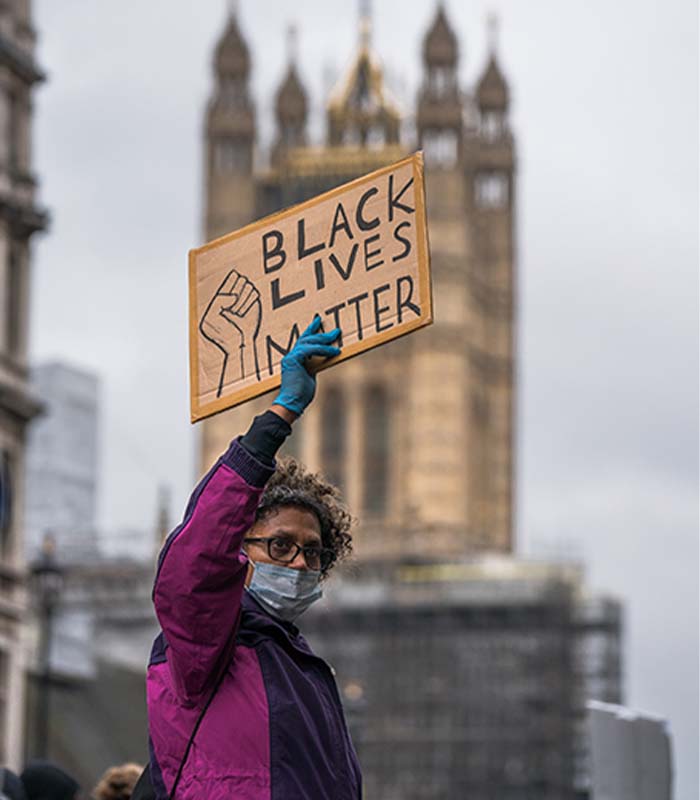London in 2050: The future of the city's social housing, property price and gentrification
Zoe Lord, School of Architecture, University of Sheffield, UK
Awards RIBA President's Awards for Research 2021
Category Cities and Community

The Black Lives Matter movement has erupted into global calls for racial justice, penetrating the architectural profession. However, while demands to diversify the architectural curriculum and workforce are important, the relationship between race and the built environment has been overlooked. The Grenfell tragedy and the COVID-19 pandemic have underlined the interconnected nature of race, housing, and quality of life, but this continues to be unacknowledged.
This study examines the UK’s housing crisis through a critical racial lens, highlighting how contemporary issues disproportionately affect ethnic minorities. Using a combination of literature research and primary interview data with professionals from BAME housing associations, the study outlines historical processes affecting housing. Reframing the mainstream narrative, it identifies housing as intrinsically linked to quality of life, and therefore to wider relationships of equality. Taking a novel approach, the research crafts projections of the city of London in 2050, which are used as a tool to expose present day mechanisms.
Firstly, the study focuses on social housing and the working class, critiquing a history of governmental attitudes and policies as grounded in racial discourse. Social housing supply is rapidly diminishing, homeownership has been idolised and in turn, social housing is stigmatised. The study then examines property price, aligning its accelerating upwards trajectory with processes of financialisation and commodification. It juxtaposes the presence of poverty and homelessness with the super-rich, set on a backdrop of gated communities, shanty towns and dire private rental conditions. Finally, the study demystifies the processes of displacement and gentrification, theorising them as contemporary evolutions of ‘slum clearance’ and ‘inner city’ policies. The discussed issues are rooted in racism, despite presenting a more covert exterior in the present day, they continue to disadvantage ethnic minorities. The study concludes by recommending radical reform, identifying changes necessary to dismantle racial inequalities in the UK’s housing system.






